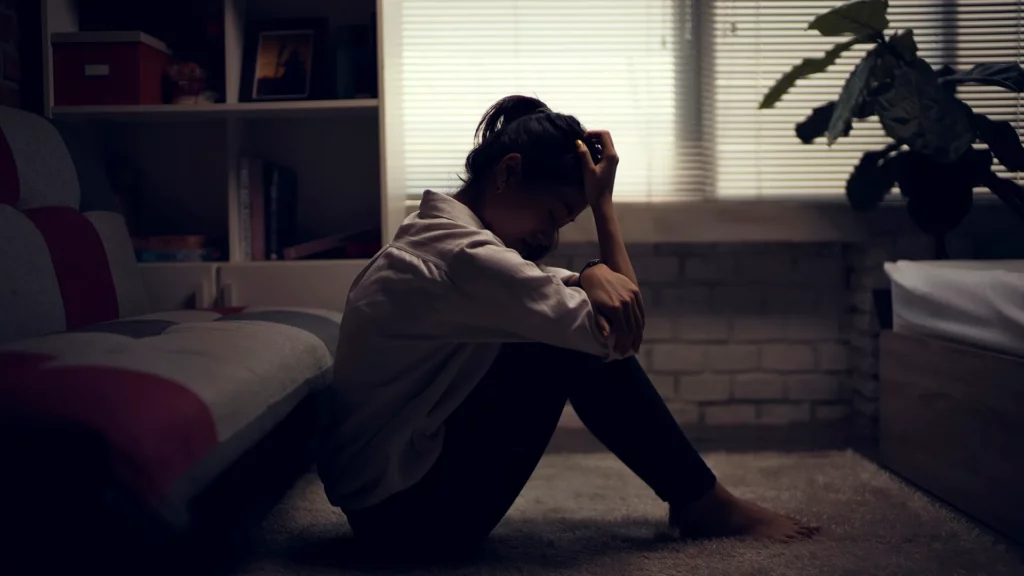Men and women may experience depression in distinct ways, and while they also share many similar symptoms and signs, a greater appreciation of the differentials may help with depression.
For depression, we have known for years that there are differences depending on whether women suffer from it or men, and those differences are essential to understanding the disorder.
In one of the most considerable depression-related differences between the sexes, women have about twice the risk of developing the condition as men.
According to some studies, this situation is partly due to biological reasons, such as the disruption of genes and hormones when brain regions develop in the male and female fetus. These natural changes during fetal development lay the foundation that creates a vulnerability to mood disorders such as depression.
In addition, women tend to be more attuned to their emotions and better at describing them when depressed. On the other hand, men may not acknowledge their symptoms as depression, perhaps by denying or hiding their unhappiness, so men may overlook the illness until it becomes more severe.
Next, we will mention seven ways depression may look distinct in men and women:
Rumination, which means dwelling on and repeating negative feelings, occurs more frequently in women who suffer from depression than men who also suffer from the disease. This behavior may involve negative self-talk, crying for no apparent reason, and blaming oneself.
Rumination does not help individuals and tends to make them feel worse. Unlike women, men tend to distract themselves when they feel depressed, which helps alleviate depression.

Men may drink heavily or turn to illegal drugs to self-medicate before the onset of depression, which is mainly the case in adolescence. In women, substance abuse tends to happen after the beginning of the depression or when anxiety levels rise.
Men suffering from depression may also try to mask their sadness by turning to other means, such as sports, television, or overwork, or by engaging in risky behaviors, such as unprotected sex, smoking, gambling, or reckless driving. Depression is also more prone to manifest irritability and anger in adolescents and men.
Women tend to be more susceptible than men to becoming depressed in response to a stressful experience.
For example, some evidence suggests that when women experience distressful events, such as the loss of a job, the death of a family member, or a complex relationship, they are more likely to respond in a way that extends their feelings of stress more than men.
This situation may be due to interactions between female reproductive hormones, stress hormones, and neurotransmitters that regulate mood.

Although women are more affected by depression and are more vulnerable to it because of their biology, doctors often overlook the illness in men.
Health professionals and family members may not notice depressive symptoms in men, which may contribute to worsening the condition. Those men may end up having severe depression before it is detected.
Although women are more affected by depression and are more vulnerable to it because of their biology, doctors often overlook the illness in men.
Health professionals and family members may not notice depressive symptoms in men, which may contribute to worsening the condition. Those men may end up having severe depression before it is detected.
Eating disorders and depression, such as bulimia and anorexia, often go hand in hand. Depression is also much more likely to happen simultaneously as an anxiety disorder in women, such as obsessive-compulsive behavior or panic disorder.
Results of studies about whether women and men respond differently to antidepressants suggest that women benefit more, whereas other studies report no such differences. If there is a gender difference in responses to antidepressants, it seems to be so slight that actual knowledge does not warrant gender-differentiated responses.
Because symptoms of depression in men can go undiagnosed or untreated for longer, the condition may become a more devastating mental health problem. On the other hand, men who suffer from depression are also more prone than women to attempt suicide successfully.
Men and women may suffer from depression and other conditions and have tried various medicines or standard therapies with little to no improvement or lasting relief.
At Long Island Neurocare Therapy, we harness advanced technologies to target the root cause of the conditions, helping both men and women live happier lives.
We utilize TMS therapy to treat major depression and Neurofeedback to treat ADHD and sleep disorders. Our technologies are safe, highly effective, non-invasive, and drug-free.
At Long Island Neurocare Therapy, your health and well-being are essential to our success. Contact us. We are here for you.
https://longislandneurocaretherapy.com